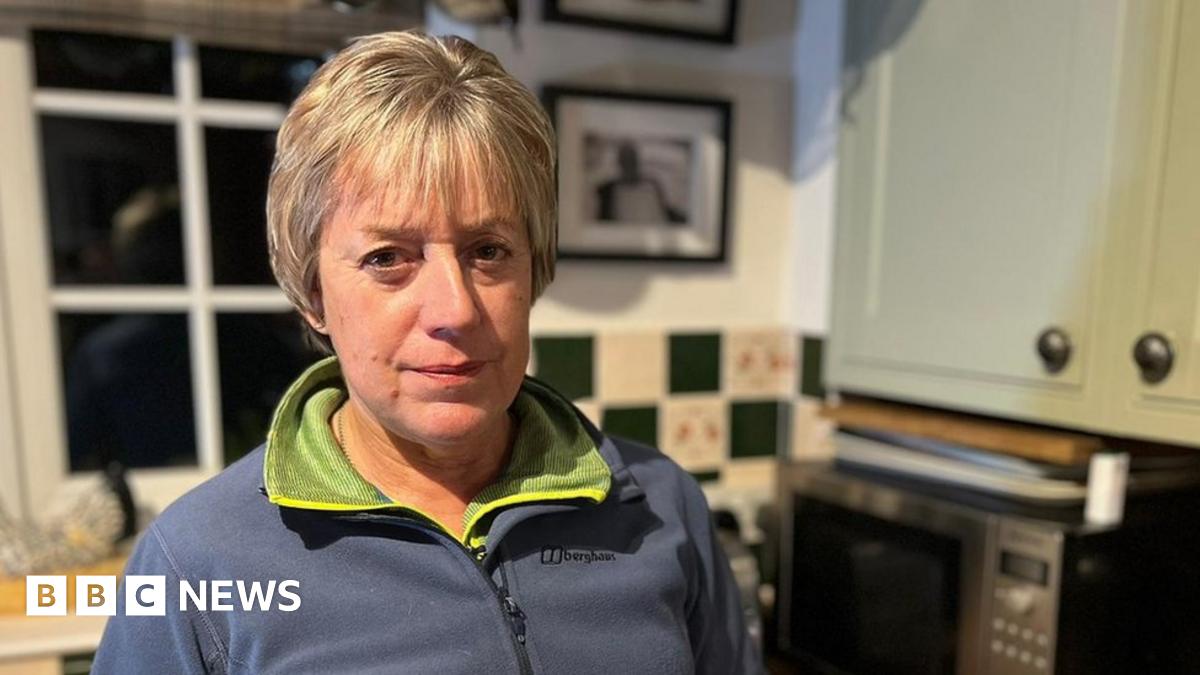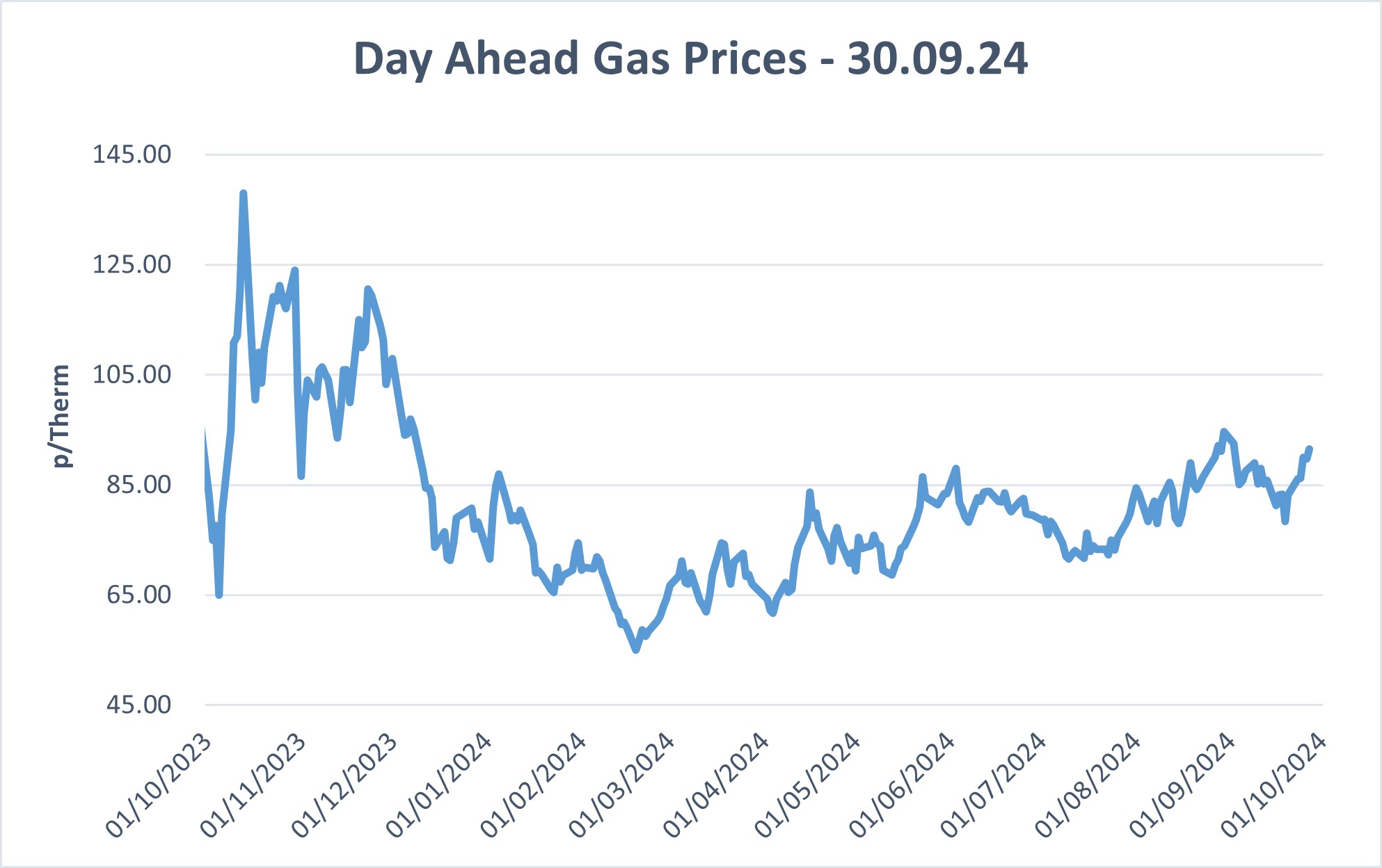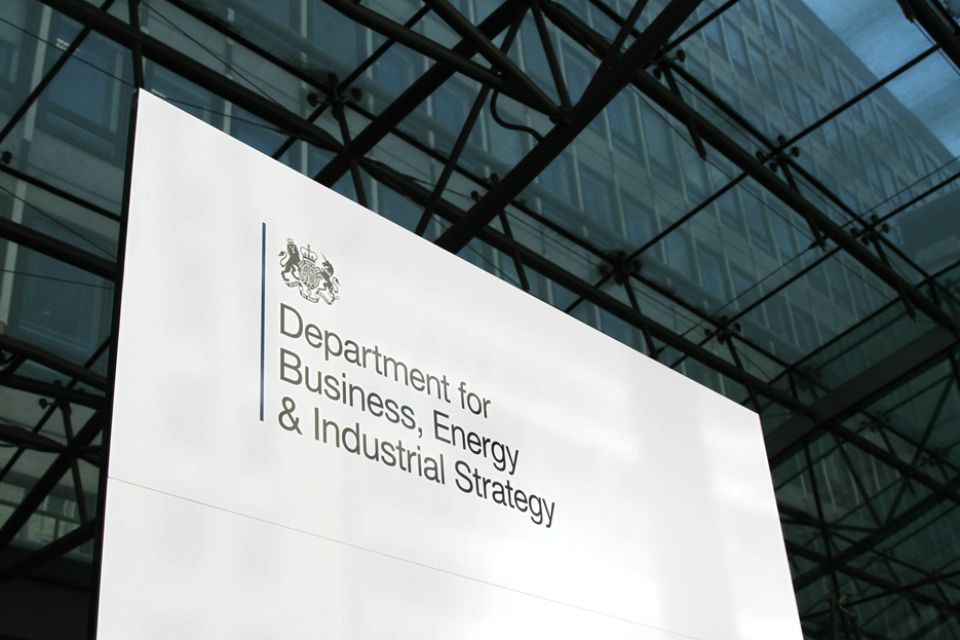That would also be good but that depends on how and where we can sell too and if they need it as well and the price return. Purchasing storage solutions seems like the medium to longer term solution still.Ideally you sell the surplus since we can't store it I read somewhere that Britains windfarms kept europe afloat during the previous cold spell...
You are using an out of date browser. It may not display this or other websites correctly.
You should upgrade or use an alternative browser.
You should upgrade or use an alternative browser.
Energy Prices (Strictly NO referrals!)
- Thread starter DXP55
- Start date
More options
Thread starter's postsI wasnt aware either, thats a bit surprising given trackers and EV tariffs fall under it?
Energy bills rise for 2.5 million homes on Economy 7
Customers on Economy 7 tariffs see bills rise 7.6% despite the government fixing prices until April.www.bbc.co.uk
Until reading this article while very asleep this morning, I had no idea that Economy 7 (which we have), doesn't fall under the governement price cap.
Will have to compare renewal prices between staying on E7 or switching to standard rate when our two year deal ends in May.
By fall under it I mean they get the unit discount. So potentially we have misunderstood it, the article(s) might just mean they not under the SVR cap but are getting the unit discount.
Last edited:
If councils spend on this they should include private rentals in my opinion.Councils could easily install them in council properties and allow them to grid share. They wouldn’t need to pay people to use less as they could store when generation is high and discharge when demand is high.
They own council properties though so no permission will be needed.If councils spend on this they should include private rentals in my opinion.
Ok is there a reason local battery storage couldnt be fed into the local grid?They own council properties though so no permission will be needed.
Soldato
- Joined
- 4 Aug 2007
- Posts
- 22,002
- Location
- Wilds of suffolk
The point to all this is if they are buying 12 months in advanced the wholesale price didn’t increase that significantly 12 months before retail prices did.
Specifically which point in time are you talking about?
As I said most of the price impact to consumers early on was not price rises as such, but that all the deals were withdrawn that were in effect discounted.
So everyone was being forced to pay variable, or sign a deal at around variable or more, but with more certainty into the future.
The majority of retail customers were paying below the ofgem cap.
The price of gas shot up before Russia invaded, which is semi normal for Dec.
The price of gas again shot up in march before falling back and then starting a long growth up and up.
We aren't paying enough by some amount.
The point of the cap is not to have some exact balancing of 3 months energy, but was to limit the energy companies vulnerable customers from being price gouged. The majority were never expected to see energy costs that were at cap level.
Its supposed to be relatively flat and not over reactionary. Basically it wasn't (and arguably isn't) fit for purpose.

3 Incredible Wholesale Gas Prices Charts
Latest Wholesale Gas Prices graphs to illustrate the current gas prices and the trend in market conditions for wholesale gas and electricity prices.
 www.catalyst-commercial.co.uk
www.catalyst-commercial.co.uk
Ok is there a reason local battery storage couldnt be fed into the local grid?
It is fed into the local grid, its literally the point in grid storage to be able to help balance the grid.
Its also why as soon as you go solar/battery you have to find out how much you can be allowed to export due to local grid considerations.
If councils spend on this they should include private rentals in my opinion.
The thing with Eco 7 is its more expensive for peak units and less for off. If you aren't using enough off peak then it ends up costing more.
It was designed for comparatively very heavy off peak vs peak usage. Most people really don't have that profile now (even if they do have elec heating)
My Go for example was costing me more for around a month until I had my solar installed even load shifting into the cheap window I couldnt get my average cost to match the 34p average that go would give you over 24 hours of constant draw.
Last edited:
Man of Honour
- Joined
- 21 Nov 2004
- Posts
- 46,315
Well, home alone this weekend, so the heating can stay off.
Still making money on our second home energy bills. Will probably pay for most of this year.
Still making money on our second home energy bills. Will probably pay for most of this year.
Last edited:
No not at all Powervault and Edf used to run a scheme called which I thought was called Grid Share but it’s called Grid services.Ok is there a reason local battery storage couldnt be fed into the local grid?
What are grid services? And how does Powervault help the grid?
Grid services just means how we make sure there's enough energy for the country to use. Right now, when the electricity grid runs short of capacity during peak periods, extra power can be generated but usually not in the cleanest or greenest way. Conversely, when there's excess renewable generation, demand can't be increased, so we end up with wasted green energy, which is not good at all.
EDF Energy is building a network of small-scale batteries to help balance the peaks and troughs of energy production and customer demand for energy. This is why we want to offer the discount up front – because owners of small-scale batteries are helping balance the grid. The grid services all happen in the background, without Powervault owners needing to do anything.
The coolest new innovation in home energy storage
Find out about Powervault – the new innovation in home energy storage for solar PVs specifically designed for the UK.
Soldato
- Joined
- 4 Aug 2007
- Posts
- 22,002
- Location
- Wilds of suffolk
I think most of us with solar would warn against battery only.
It massively variable based on the cost to import and right now bar Tesla there are no special dedicated tariffs.
Its really difficult to see how pricing will move. IMO it has to move to demand based pricing, where the pricing is variable based on demand but also supply. As we will have periods of very high green, but also troughs.
Flat pricing really doesnt help encourage the right consumer behaviours. Demand pricing will, especially if smallish affordable batteries are available.
I do suspect we will see demand based pricing, but I also suspect it will be far flatter than people think, with more home batteries, more Evs etc then the cheaper periods are going to see far more demand and hence pull up the price there (and lower the peak elsewhere)
It massively variable based on the cost to import and right now bar Tesla there are no special dedicated tariffs.
Its really difficult to see how pricing will move. IMO it has to move to demand based pricing, where the pricing is variable based on demand but also supply. As we will have periods of very high green, but also troughs.
Flat pricing really doesnt help encourage the right consumer behaviours. Demand pricing will, especially if smallish affordable batteries are available.
I do suspect we will see demand based pricing, but I also suspect it will be far flatter than people think, with more home batteries, more Evs etc then the cheaper periods are going to see far more demand and hence pull up the price there (and lower the peak elsewhere)
Ok if its fed to the local grid then it doesnt need to be council houses only. If councils arent capable of not discriminating then battery storage keep centralised ran by government. I prefer its government ran anyway to prevent postcode lotteries.Specifically which point in time are you talking about?
As I said most of the price impact to consumers early on was not price rises as such, but that all the deals were withdrawn that were in effect discounted.
So everyone was being forced to pay variable, or sign a deal at around variable or more, but with more certainty into the future.
The majority of retail customers were paying below the ofgem cap.
The price of gas shot up before Russia invaded, which is semi normal for Dec.
The price of gas again shot up in march before falling back and then starting a long growth up and up.
We aren't paying enough by some amount.
The point of the cap is not to have some exact balancing of 3 months energy, but was to limit the energy companies vulnerable customers from being price gouged. The majority were never expected to see energy costs that were at cap level.
Its supposed to be relatively flat and not over reactionary. Basically it wasn't (and arguably isn't) fit for purpose.

3 Incredible Wholesale Gas Prices Charts
Latest Wholesale Gas Prices graphs to illustrate the current gas prices and the trend in market conditions for wholesale gas and electricity prices.www.catalyst-commercial.co.uk
It is fed into the local grid, its literally the point in grid storage to be able to help balance the grid.
Its also why as soon as you go solar/battery you have to find out how much you can be allowed to export due to local grid considerations.
The thing with Eco 7 is its more expensive for peak units and less for off. If you aren't using enough off peak then it ends up costing more.
It was designed for comparatively very heavy off peak vs peak usage. Most people really don't have that profile now (even if they do have elec heating)
My Go for example was costing me more for around a month until I had my solar installed even load shifting into the cheap window I couldnt get my average cost to match the 34p average that go would give you over 24 hours of constant draw.
Last edited:
I think you’re missing the point.Ok if its fed to the local grid then it doesnt need to be council houses only. If councils arent capable of not discriminating then battery storage keep centralised ran by government. I prefer its government ran anyway to prevent postcode lotteries.
My battery and others on here are privately owned. We can do what we want with them and don’t have to grid share if we don’t want to. Council owned battery or even government owned batteries will be tied to the grid primarily.
My comment wasnt about your private batteries it seems you forgot what I replied to?I think you’re missing the point.
My battery and others on here are privately owned. We can do what we want with them and don’t have to grid share if we don’t want to. Council owned battery or even government owned batteries will be tied to the grid primarily.
No I red your post.My comment wasnt about your private batteries it seems you forgot what I replied to?
Soldato
- Joined
- 23 May 2006
- Posts
- 7,907
this may be the case usually... and I don't know what happened but when I signed up to go faster 2 years ago (and go was the same ) it's off peak was 5p/5.5p. and it's on peak was 14p. which was actually 1p CHEAPER than their standard variable tarrif. there was literally no reason for anyone not to be on go (and at the time Go was marketed as designed for EV users but not sold exclusively for themThe thing with Eco 7 is its more expensive for peak units and less for off. If you aren't using enough off peak then it ends up costing more.
It was designed for comparatively very heavy off peak vs peak usage. Most people really don't have that profile now (even if they do have elec heating)
My Go for example was costing me more for around a month until I had my solar installed even load shifting into the cheap window I couldnt get my average cost to match the 34p average that go would give you over 24 hours of constant draw.
I have no idea how it was ever a profitable thing for them back then
Last edited:
Not really - this is always posted when people don’t understand how it works.They put prices up instantly though when wholesale price went up. It seems a bit like fuel pump, prices go up quickly but very slow to come back down.
This is the price cap history.

Does anyone know how many Octopus energy saving sessions there has been?
The session this week was the 6th one.
Last edited:
My point was and I’ll say it again. If these companies are buying their energy 12 months in advance why is the price cap set at 330 p/therm in Jan 2023, when wholesale prices were 210-220 p/therm in 2022?Not really - this is always posted when people don’t understand how it works.
This is the price cap history.

The session this week was the 6th one.
Our fixed rate finishes in March, just had the new offers and forecast of usage.
Goes from £1,100 pa to £6,500...
We need to get off this business tariff and back to domestic! As we always were prior to a couple of years ago when one of these energy middlemen put us on a business tariff. It made no difference previously, now it does!
Goes from £1,100 pa to £6,500...
We need to get off this business tariff and back to domestic! As we always were prior to a couple of years ago when one of these energy middlemen put us on a business tariff. It made no difference previously, now it does!

Who said the energy suppliers buy all of their customer energy exactly 12 months ahead?My point was and I’ll say it again. If these companies are buying their energy 12 months in advance why is the price cap set at 330 p/therm in Jan 2023, when wholesale prices were 210-220 p/therm in 2022?
The term used by Ofgem and Government is : 'Companies buy energy many months ahead'

UK gas supply explainer
This sets out the background to the wholesale gas prices issue and the action government is taking to protect the UK’s energy supply, industry, and consumers.
Last edited:
Soldato
- Joined
- 4 Aug 2007
- Posts
- 22,002
- Location
- Wilds of suffolk
Might be a bit pedant but i dont believe they are specifically buying 12 months in advance, but need to have contracts for 12 months supplyMy point was and I’ll say it again. If these companies are buying their energy 12 months in advance why is the price cap set at 330 p/therm in Jan 2023, when wholesale prices were 210-220 p/therm in 2022?
Soldato
- Joined
- 22 Jul 2014
- Posts
- 3,900
- Location
- Oxon
My point was and I’ll say it again. If these companies are buying their energy 12 months in advance why is the price cap set at 330 p/therm in Jan 2023, when wholesale prices were 210-220 p/therm in 2022?
They aren't buying their energy 12 months in advance at one single point in time, in unison - they're doing it at the individual buying team level (of which there will be multiple within even single suppliers for different kinds of customers), constantly, as their forecast demand changes into the future.
Their weighted average cost of wholesale energy is constantly changing.
Last edited:

